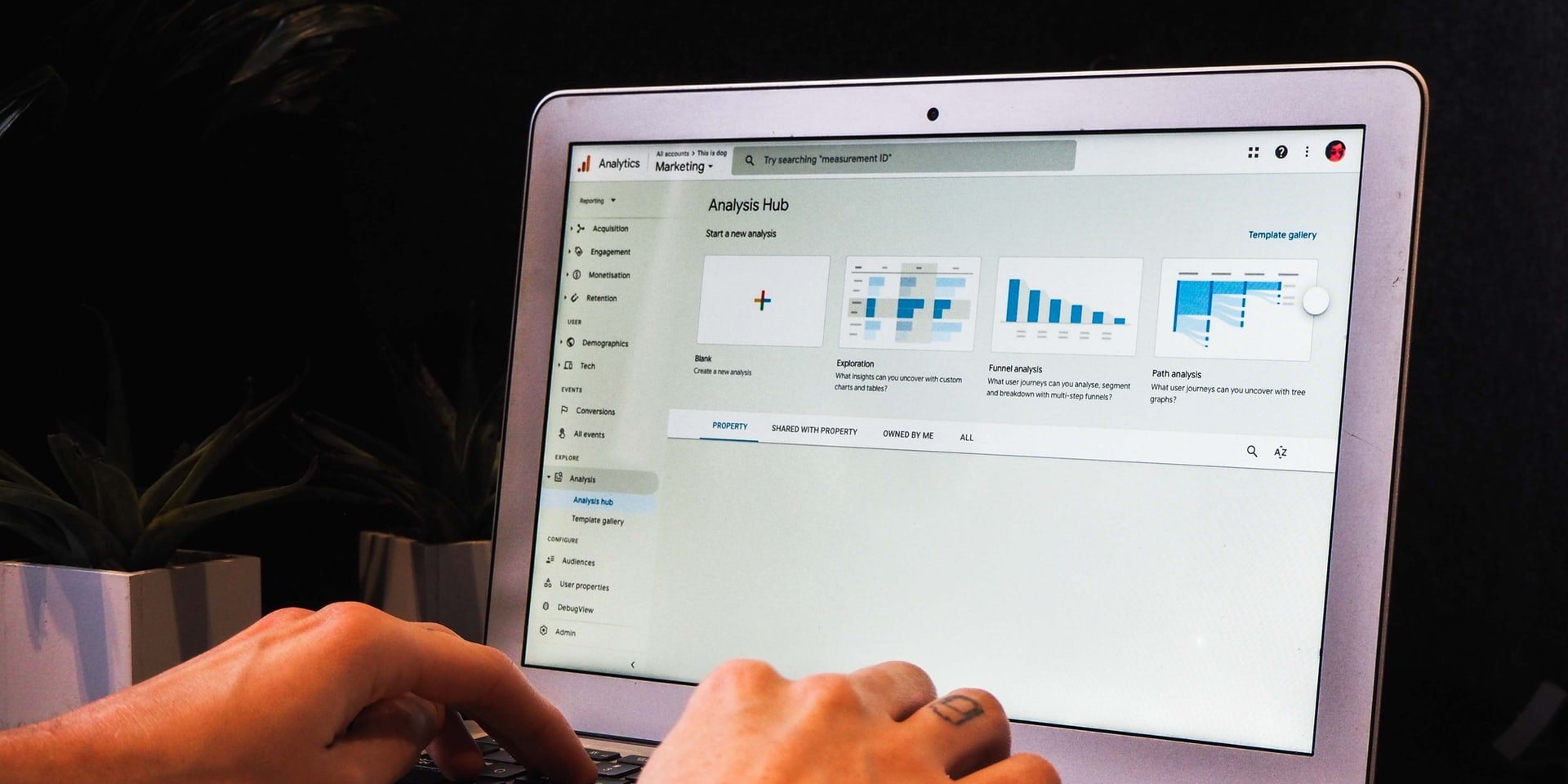Enhancing GA4 conversion tracking: How to count conversions once per session
GA4 has reintroduced the once-per-session conversion counting method. Find out what this means and how to implement more accurate conversion tracking.
Read moreWe caught up with Web Developer Scott Spragg to find out what GA4 means for us and for our clients.
MC: So Scott, tell us in a nutshell, what exactly is Google Analytics 4 and why should we be excited about it?
SS: It’s Google Analytics made much more useful in terms of how you can collect and use data to inform your marketing campaigns. It’s exciting as we’ll be able to use it to create more bespoke strategies for clients based on what we know for certain about how their visitors react with their site.
MC: Brilliant! So this is all set and ready to roll out?
SS: No, not as such. GA4 Is absolutely still in its early stages and Google have plenty that they still need to implement to make it a fully useable platform. However, being able to jump on it off the gate is giving us the chance to learn and grow with it as it develops – the platform is going to grow alongside our understanding of it.
MC: Sounds interesting – so we’re adopting this early to learn as we go?
SS: Yeah, you could say that!
MC: Well great! But what does it actually offer that’s different to Google’s Universal Analytics? Surely sessions data is sessions data… where can you go with that?
SS: Well this is one of the key areas where GA4 is different – while UA was built around page views and building a picture around those, GA4 focuses more around flexible events that you can more easily use to determine what’s useful for your marketing campaigns. You can’t identify individuals due to GDPR, but what you can do is identify the exact path users are making throughout the site, which will give us a clearer idea than ever before of user journeys.
It’s also going to be using machine learning to develop and uncover insights, so the earlier we adapt it and the more we use it, the more useful it’s going to be for us.
MC: But Events are something we already use with Universal Analytics – what is GA4 doing to make them different?
SS: Simply put, that data is less isolated. Whereas Events is a subsection in UA that you have to navigate to before adjusting your filters to see what you want, it’s the primary focus of GA4. It provides a more complete understanding of the full customer lifecycle by bringing together data about acquisition retention across app and web scale.
It’s a lot different to UA. You can actually add in other domains to GA4 but this is irreversible, so that particular part is only useful in particular circumstances, such as for businesses with a portfolio of sites they’re really keen to measure as one. Looking ahead, the whole experience of GA4 will also work without cookies or identifiers, which is essential as we’re approaching the cookieless future. Basically, Google is saying is that you’ll be able to learn about your customers even when there are gaps in the data.
MC: So we’ll be able to identify user behaviour without compromising privacy or GDPR rules?
SS: Exactly.
MC: How is this useful for clients? Are there particular industries which will benefit from this more?
SS: It’s useful as we’ll be able to get a clear idea of how users navigate around the site and which areas they’re more drawn to click on. Instead of piecing together average session time or pages per session, we’ll be able to identify which areas grab attention the most on particular pages and what other factors in the user journey might influence this. From a web design perspective, it’s absolutely going to strengthen our Data-led Design® offering as we’ll quickly be able to access quantifiable data that will help us improve conversion rates.
MC: Okay, well this sounds great! What’s the process for rolling this out? Can users convert their existing properties onto the new platform?
SS: What Google are recommending at the moment is we set up new properties in parallel with Universal Analytics so you have the two running side by side. There’s a lot of merit in this as there’s still such a long way for it to go, and anyone using it is going to need the two of them to get a really good set of data. It also gives you the fall back of having a platform you’re familiar with to get data from if you need it quickly.
Currently some referral mediums aren’t quite working on GA4. Yahoo, for example, tends to come through as a referral rather than search and we can’t use the filter we’d normally use to fix that yet. There’s also no permanent way to filter out certain types of traffic (non UK, for example) but, like I said, it’s early days and I expect these will be accommodated soon.
MC: Is there anything in particular you’re excited about that could be on its way through GA4?
SS: Something really exciting is that Google have been reported to be releasing updates for GA4 on a weekly basis. These might just be minor bug fixes, but we’re going to be keeping tabs over the coming weeks to get a sense of how quickly the platform might develop and how fast we’ll be learning.
MC: What should our clients do if they’re interested in what GA4 can do for them?
SS: The best thing to do is to reach out to their account manager, who’ll be able to talk through whether we think an early adoption of GA4 will be a good move for them.
More articles you might be interested in:
.png)
GA4 has reintroduced the once-per-session conversion counting method. Find out what this means and how to implement more accurate conversion tracking.
Read more
What are thank you pages, and why are they important for monitoring performance? Find out more about thank you page best practices.
Read more
Wondering where to find bounce rate in GA4, and what the measurement’s changes mean? Our latest blog compares bounce rate versus engagement rate in...
Read more
Google sets new standards for links and content, new functionality emerges in Analytics and Search Console, and new tool Neurons hits the world of...
Read more.jpg)
What do you really need to know before getting started with GA4? Dr Dave Chaffey highlights the quirks and 'gotchas' of the new platform.
You can’t...
Read more
Welcome to the latest round-up of all things digital. This is where we look at the latest updates in the world of PPC, SEO, Content and International...
Read more
Brands putting off migrating to GA4 risk losing all of their YoY data. Al Rowe shares why this is bad news for advertisers and how it can be dodged.
Read more.jpg)
Creating conversion-optimised PPC campaigns start at strategy planning. Do you know how you can maximise the return on your ad investment? Dave...
Read more